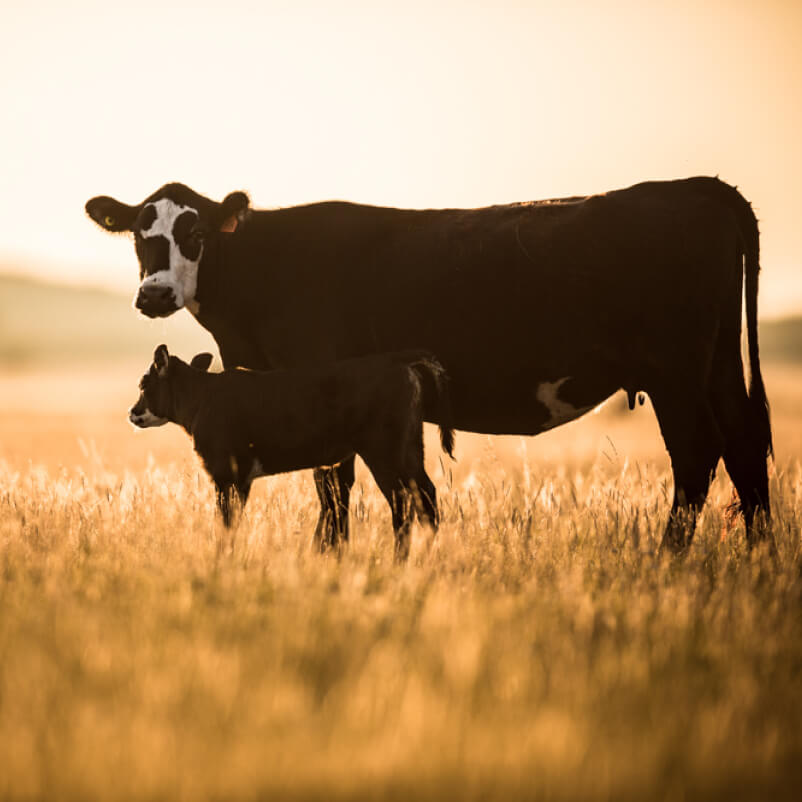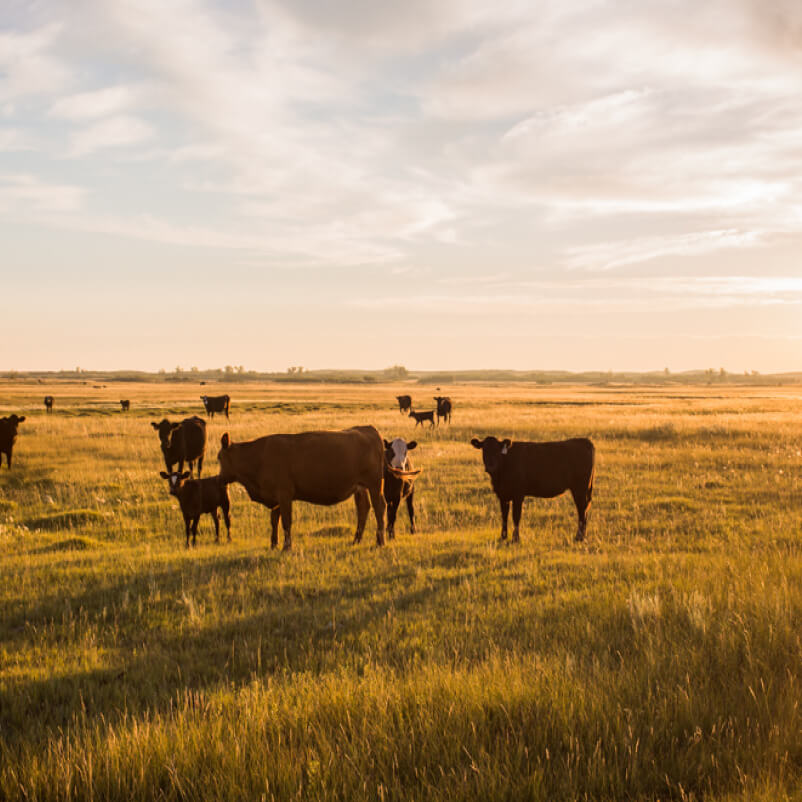Sustainability

Sustainable beef is defined as a socially responsible, economically viable, and environmentally sound product that prioritizes the planet, people, animals and progress. More specifically, sustainability includes the following five principles: natural resources, people and the community, animal health and welfare, food, and efficiency and innovation.
Cattle farmers and ranchers have a long-standing tradition of doing the right thing for the land and their animals and have demonstrated a growing commitment to sustainability. Today, these farmers and ranchers understand the need to raise more food using fewer resources. Global meat demand is expected to surge by 70 per cent by 2050 due to a growing world population, particularly the middle class. The global livestock sector needs to ensure that they are able to meet this demand by supplying high quality protein while optimizing the use and sustainability of limited natural resources.

To bring together the many conversations occurring about sustainability, the Canadian beef industry created the Canadian Roundtable for Sustainable Beef (CRSB) in 2014, a collaborative group encompassing the whole beef value chain from gate to plate and beyond, of which CCA was a proud founding member. The CRSB’s mission is to advance the continuous improvement of Canadian beef industry sustainability through multi-stakeholder engagement, collaboration, communication, and science. The CRSB promotes this through their three core areas of work including 1) sustainability benchmarking 2) a voluntary certification framework and 3) sustainability projects. Canada was the first country in the world to have an outcome-based certified sustainable beef program. Learn more about the CRSB.
What We’ve Done and Where We’re Going
Canadian beef farmers and ranchers pride themselves on being conservationists, protecting the lands and providing a strong foundation for the environment and future generations. Sustainability is not a new concept for beef producer—historically beef producers have worked hard caring for the land and their animals and it is a value beef producers continue to focus on looking to the future.
The Canadian beef sector is committed to continuously improve environmental outcomes, with benefits today and for generations to come. The industry has collaboratively created ambitious goals towards 2030 focused on:
As part of our greenhouse gas emission reduction goals, we’re addressing the methane produced by cattle. While the methane produced by cattle is part of a natural cycle, it remains a challenge we acknowledge. That’s why we’re working on solutions to decrease emissions 33% by 2030. Cattle do a lot for the environment – we want to help them do even more.
Sustainability Pillars
Environmental Sustainability
Cattle farmers and ranchers are long-time partners with the environment and manage their land to ensure sustainable operations for the long-term. They manage their farms and ranches using progressive practices that protect the health of their animals and the environment including water sources and work towards the maintenance of a sustainable agro-ecosystem. Modern methods of raising cattle produce more beef from fewer animals which maximizes resources like land and water while providing essential nutrients for the human diet. To learn more about environmental sustainability, please visit our Environment & Climate Change page.
Social Sustainability
The success of the Canadian cattle industry relies on healthy, well-cared for cattle and strong rural communities. Canada’s beef farmers and ranchers work hard to care for their animals every day. Canadian animal care regulations and standards, including the Code of Practice for the Care and Handling of Beef Cattle, which is a multi-stakeholder initiative, is an important aspect of animal care. Farmers and ranchers are a key part to growing strong rural communities across Canada. For example, many farmers and ranchers and their family members also work off-farm within the rural communities where they live, and many contribute significant volunteer hours every year.
Economic Sustainability
Economic sustainability is dependent upon the health of all sectors along the supply chain – between the cow/calf farm or ranch, the feedlots, and the processors. The people who operate Canada’s 60,000 beef farms and feedlots understand that sustainable management is essential for good beef and good business. The decisions made by farmers and ranchers help protect the land and work with it in a beneficial way to sustain cattle production for the long-term. For more information on the Canadian beef sector’s economics, please visit our economics page.
Guardians of the Grasslands
In 2021, conservationists, ranchers, and Canadian filmmakers released the short documentary, Guardians of the Grasslands, which explores one of the world’s most endangered ecosystems, the Great Plains Grasslands, and how they are working together to conserve those grasslands. Watch the 12-minute film below:





